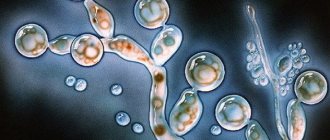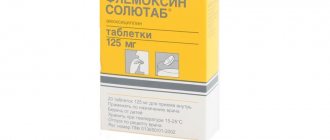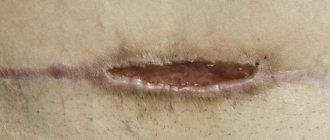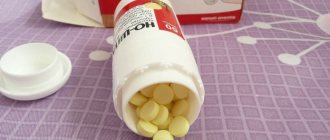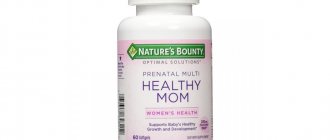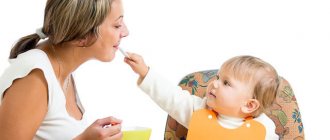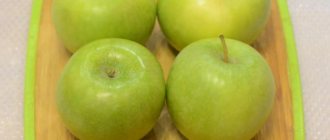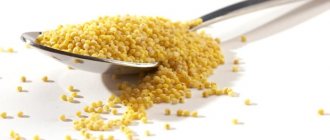Why allergies may worsen after childbirth
The fact that carrying a child and the process of childbirth greatly weakened her body was probably heard by every mother - relatives, doctors, and friends. But there is no escape from this fact - despite the naturalness of the process, pregnancy really becomes a heavy burden.
It weakens many processes and functions of the body, especially the immune system. In addition, it should be understood that immediately after conception, a woman’s immunity is suppressed, because otherwise it would reject the fetus as something foreign (thanks to the father’s cells). As a result, most mothers (sometimes quite unexpectedly for themselves) develop allergies during lactation to familiar foods or things.
The third factor is the feeding process itself. It also requires the mother to fully devote her strength and resources, thereby weakening her defenses. This is especially evident if the mother is immersed in caring for the baby and forgets about herself - she sleeps little, eats poorly, and is constantly nervous.
Scientists have not yet figured out exactly why allergies appear during breastfeeding, because it is an excessive response of the immune system to an invasion, and the mother’s immune system is weakened. However, statistics stubbornly insist on their line - in most cases, immunodeficiency is accompanied by allergies.
One of the assumptions says that the cause of allergies may be a lack of fluid in the body and excess calcium. This situation is quite often observed during breastfeeding and provokes the production of histamine, the hormone “responsible” for the occurrence of allergies.
Forms of allergies during lactation
Allergies in a nursing mother take different forms. There are three main types of reaction:
- respiratory;
- gastrointestinal;
- cutaneous
There are local and general allergy symptoms. The first include allergies:
- rhinitis;
- dermatitis;
- conjunctivitis;
- otitis;
- bronchial spasm;
- urticaria, eczema.
A common symptom is a complex of several local ones. If the first signs of any of these reactions appear, you should immediately consult a doctor. If you wait until the allergy goes away on its own, you can expect serious deterioration, even leading to Quincke's edema and death.
Dermatitis, neurodermatitis
Dermatitis and neurodermatitis are one of the symptoms of allergies during lactation.
They arise as a reaction to toxins accumulated in the body - due to disruption of the gastrointestinal tract, food allergies, dysbiosis or poor nutrition. Symptoms of allergic dermatitis in a nursing mother are redness, dryness and flaking of the skin, sometimes accompanied by itching. A rash appears on the face, neck, arms, palms (less often on the legs and buttocks).
Sometimes this rash looks like youthful pimples on the face. So when they appear, you should be wary - perhaps this is not a good symptom.
Hay fever
Hay fever is a seasonal runny nose, an allergic reaction to environmental factors.
It often occurs during breastfeeding, when the body is weakened, and is usually associated with the spring period, when trees and grasses begin to bloom, filling the air with pollen. Symptoms of hay fever are similar to a common cold - headache, nasal congestion, burning in the throat, sometimes conjunctivitis, dry cough. They can be distinguished by the absence of temperature and increased symptoms after a long stay in the fresh air or even indoors, but with open windows.
Allergic rhinitis
Allergic rhinitis is quite similar in description to hay fever, but is not tied to seasonality. A runny nose can occur at any time of the year as a reaction to dust, pet hair, mold, etc.
Rhinitis itself may be accompanied by additional symptoms:
- nasal and ear congestion;
- clear watery or mucous discharge;
- itchy nose, constant sneezing;
- decreased sense of smell and sensitivity of taste buds.
In addition, allergic rhinitis can affect the eyes - they become red and watery.
Bronchial asthma
Bronchial asthma as an allergic reaction can occur due to genetic predisposition, excess weight or hormonal changes in the body. Hormone fluctuations are something that nursing mothers have to deal with, and they are usually the cause of atopic asthma. And also – excessive physical and emotional stress, also familiar to every mother. Asthma can also develop as a complication after acute respiratory viral infection or other respiratory diseases.
The symptoms of asthma are recognizable:
- shortness of breath, difficulty breathing;
- lump in the chest area;
- whistling sounds when breathing;
- feeling of lack of oxygen;
- dry cough.
Any of these symptoms should be a reason to pay attention to your health. They develop gradually, reaching a peak in the evening or morning, after which an attack occurs. This is a very serious illness and must be treated by an allergist.
Quincke's edema
Quincke's edema is a severe form of allergy that is very life-threatening. Like other forms, it develops due to increased sensitivity to allergens contained in food or air. It is characterized by swelling of the face and neck, which gradually spreads to the larynx, impairing breathing. If the necessary assistance is not provided on time, death is possible. That is why a nursing mother needs to immediately seek help for swelling of the eyelids, lips, and face as a whole.
Emollients - suitable for complex treatment of skin allergies
Emollients consist of fatty alcohols, acids, waxes, esters and fats of natural origin. Their action is associated with softening the skin, moisturizing, restoring the lipid layer, regulating the ion-water balance and relieving the inflammatory process.
These drugs are among the main ones in the treatment of atopic dermatitis.
Pros:
- harmless
- effectiveness in the treatment of atopic dermatitis
- easy to use
- improves the properties of the skin, reduces the risk of complications
Minuses:
- can lead to acne due to clogged pores
- under their influence the skin regenerates more slowly
List of drugs
- Topicrem,
- Mustela,
- Sanosan,
- Weleda,
- Peach oil,
- Emolium.
Is it possible to breastfeed if you have allergies?
Many mothers worry that their allergies can be “transmitted” to the baby through milk, but such fear is unfounded.
The symptoms that poison the mother’s life are not transmitted to the baby during breastfeeding, but he may receive the allergen that caused her illness. This does not mean 100% that the child will also have an allergy, but there is a possibility. After all, quite often there is a genetic predisposition to allergies. There is even an opinion that breastfeeding with hay fever or any other form of it helps strengthen the baby’s immunity and reduces his chances of becoming allergic in the future.
If a mother takes any allergy medications, you should find out how they affect the baby and how compatible they are with breastfeeding. Most modern drugs are relatively safe and approved for use in hepatitis B. Only a doctor can tell you exactly what to take for allergies while breastfeeding a mother - prescribing medications on your own is dangerous for the health of the baby and the mother herself.
What are the contraindications?
Allergy ointments are contraindicated for those who have an individual intolerance to any of the components included in the drug.
Not all drugs are approved for children, especially premature and low birth weight children.
Contraindications for hormonal ointments
- Pregnancy is a relative contraindication
- Skin infection by viruses (herpes, etc.)
- Open wounds
- Post-vaccination reactions
- Acne (acne)
- Mycoses (Fungal skin infections)
- Bacterial skin lesion
- Use with caution in children under 7 years of age
- Helminthiasis
Useful video: Can you be allergic to allergy ointment?
How can you treat allergies during lactation?
Treatment of allergies in a mother while breastfeeding involves the use of specialized antihistamines. Their choice is quite wide, but it is very important to choose anti-allergy pills that can be combined with feeding, otherwise it will have to be interrupted. And this is always stressful for both mother and baby.
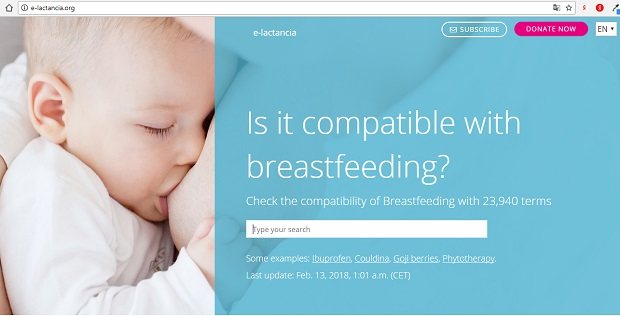
Alas, official instructions for almost all antihistamines registered in Russia prohibit their use during breastfeeding. In any case, after reading the instructions for dozens of tablets, we did not find a single drug approved for breastfeeding. However, Spanish researchers, the creators of the authoritative English-language website E-lactation to help mothers, have conducted large-scale studies. They also checked how compatible allergy pills are with breastfeeding. It is their findings that we present here.
All allergy medications, also called antihistamines, are divided into three groups.
First generation drugs
They have a short-term effect, have a strong sedative effect, and are often addictive. Most of these drugs are not compatible with breastfeeding. These include: Suprastin. The drug has quite a few contraindications. It can reduce milk production, cause drowsiness in the mother, and negatively affect the child’s condition;
- Diazolin. The drug is not included in the international classification, and the instructions indicate the lactation period as a contraindication for use;
- Tavegil, Clemastine. It also causes severe drowsiness in mother and child, which is dangerous. He may refuse to breastfeed and fall into a stupor. If the pills are still taken, the child should not be left unattended, especially if he is sleeping;
- Diprazine. The side effects of this drug are similar to the previous ones. It is not recommended to take it during breastfeeding, but one-time use is acceptable to relieve symptoms. It is better to express the milk several times after taking it.
Second generation drugs
They have a longer action and fewer side effects. Such antiallergic drugs during breastfeeding are acceptable if the dosage and rules of administration are strictly observed.
- Alerza, Zyrtec, Letizen, Zincet, Zodak, Cetrin Cetirizine. They do not pass into milk, do not cause drowsiness, and no negative consequences of consumption have been identified.
- Alcedin is a solution for inhalation, not absorbed into the blood and milk, safe for hepatitis B;
- Loratadine, Claritin, Clarotadine, Loridine are quickly eliminated from the body and practically do not pass into milk.
- Eltset, Zenaro, Glentset, Xizal. According to the international reference book and the findings of British doctors, the drugs are considered conditionally safe. When taking them, there were no negative consequences for mother or baby.
- Terfenadine. The drug is prohibited for long-term use; it can cause nervousness and moodiness in a child. In case of heart rhythm disturbances, use is carried out under the supervision of a doctor.
- Fexadin, Allerfex, Telfast, Dinox, Fexofast. The active substances of the drugs pass into milk, but do not have a negative effect on the child, therefore they are approved for use during breastfeeding.
- Dimetindetna maleate (fenistil) is inferior in effectiveness to Zyrtec, Citrine and some others, but is approved for use even for infants from 1 month.
Third generation drugs
The most modern drugs that are transformed in the body into active metabolites. These drugs do not cause drowsiness, do not impair concentration, memory, vascular and heart function. Such allergy remedies are relatively safe for nursing mothers. These include:
- Levocytirizine. Allowed during lactation, but requires monitoring the child's reaction. If a rash appears, loss of appetite or irritability, you should stop taking the medicine and consult a doctor immediately.
- Desloratadine. The drug blocks histamine and eliminates allergy symptoms. The concentration of active substances in blood and milk is very low, so side effects are extremely rare.
- Fexofenadine. The drug is effective for 24 hours, the concentration in milk is low. It is prescribed in cases where the benefit to the mother is higher than the possible risk to the child.
But no matter how safe or familiar antihistamines are, they can only be prescribed by a doctor, after examining the patient and conducting the necessary tests!
Watch your child's reaction! Any warning signs (drowsiness, moodiness, skin, intestinal manifestations) should be a reason to discontinue the drug.
Histamine and antihistamines: principle of action
Upon contact with an allergen, excessive production of immunoglobulin type E (igE) occurs, which is practically absent in the blood under normal conditions. An increase in the level of igE also occurs when there is a parasitic disease in the body caused by helminths and arthropods.
By binding to the allergen, immunoglobulin forms a complex, and histamine and other inflammatory mediators are released into the blood, which leads to the appearance of rashes, itching, burning, swelling and other allergic manifestations. The most active of these components that provoke allergic reactions is histamine.
Normally, free histamine binds to blood plasma proteins; this does not happen with allergies.
Antihistamines prevent further release of histamine and bind the resulting active histamine in the plasma.
Thanks to this, such drugs are successfully used as antiallergic agents.
Forget about allergies once and for all. This will help!
No chemicals or pills.
No harm to breast milk and baby! Monastic allergy collection: natural herbal composition and 100% effect. It is enough to drink 1-2 cups and monitor the amount...
Prevention of allergies in nursing mothers
To minimize the harm from medications, it is better to take action in advance and prevent illness. To do this, you will need to implement several rules and restrictions:
- Carefully monitor your reaction to pets (birds also count) during lactation. The absence of allergies to them in the past is not a reason to skip this point. After giving birth, everything can change;
- maintaining hygiene. To prevent the accumulation of dust, you need to ventilate the rooms daily, wipe the floors, and regularly wash bed linen, toys, and curtains. And in addition, beat out carpets, remove heavy curtains, fur and woolen bedspreads and anything that may be suspected of allergenicity;
- a diet that involves avoiding food allergens. Any citrus fruits, red fruits and vegetables, honey and bee products, nuts and some types of fish are high-risk products;
Allergies can significantly reduce the comfort of life, but mom is already tired a lot. Therefore, there is no need to try to endure it, but you also cannot self-medicate - after all, the child’s health is at stake. It will be much safer and more effective to seek medical help - this will help quickly alleviate the condition and continue breastfeeding without harm to the baby.
